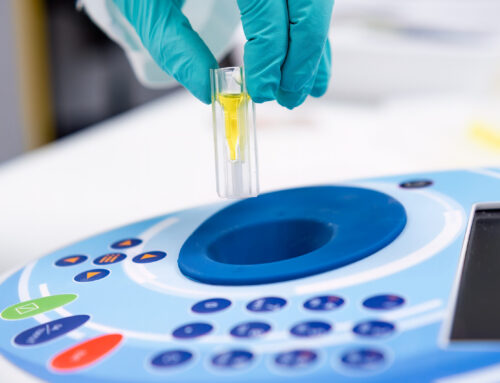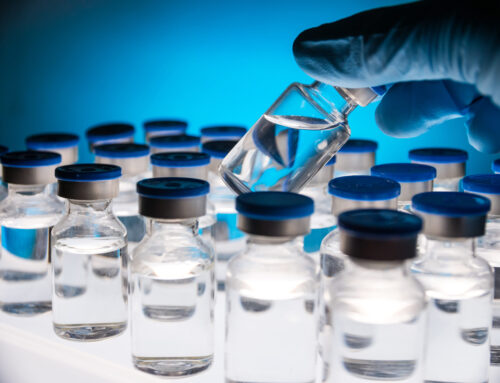Cholesterol metabolism is a tightly regulated process involving the liver, intestines, adipose tissue, and endocrine system. While dietary intake and genetics play well-known roles, hormone balance is often overlooked as a central regulator of lipid homeostasis. Research increasingly supports the idea that hormone therapy—particularly estrogen, testosterone, and thyroid hormone replacement—can influence cholesterol levels and, in some cases, improve cardiovascular outcomes.
Hormonal Regulation of Cholesterol
Several hormones exert direct or indirect effects on cholesterol synthesis, transport, and clearance:
- Estrogen: Enhances expression of LDL receptors in the liver, facilitating clearance of LDL cholesterol (“bad cholesterol”) from circulation. Estrogen also tends to raise HDL cholesterol, which is protective against atherosclerosis.
- Testosterone: Has complex effects on lipids. In physiologic levels, testosterone can reduce total cholesterol and triglycerides, though supraphysiologic doses (e.g., anabolic steroid use) often decrease HDL and increase cardiovascular risk.
- Thyroid hormones (T3 and T4): Increase hepatic LDL receptor activity and stimulate cholesterol clearance. Hypothyroidism is a well-documented cause of hypercholesterolemia.
- Cortisol and insulin: Chronic excess cortisol (Cushing’s syndrome) or insulin resistance can drive dyslipidemia through increased hepatic triglyceride synthesis and impaired lipoprotein clearance.
These hormonal influences highlight why endocrine disorders frequently manifest as lipid abnormalities.
Hormone Therapy as a Cholesterol-Modulating Strategy
1. Estrogen Therapy (Postmenopausal Women)
After menopause, estrogen levels decline sharply, often coinciding with rising LDL and declining HDL cholesterol. Hormone replacement therapy (HRT) with estrogen has been shown to:
- Reduce LDL cholesterol by 10–15%
- Increase HDL cholesterol by 5–10%
- Lower lipoprotein(a), a genetically influenced cardiovascular risk marker
However, the cardiovascular benefits are nuanced. Large trials (e.g., the Women’s Health Initiative) revealed that estrogen therapy can increase risks of thromboembolism and stroke in some women. Current guidelines suggest individualizing HRT for symptomatic menopausal women, with lipid improvement considered a secondary benefit rather than a primary indication.
2. Testosterone Therapy (Men with Hypogonadism)
In men with clinically confirmed hypogonadism, testosterone replacement therapy (TRT) may modestly improve lipid parameters:
- Decreases in total cholesterol and triglycerides
- Mild reductions in LDL cholesterol
- Variable effects on HDL, with some studies showing decreases
The cardiovascular safety of TRT remains debated, with evidence pointing to both protective and adverse outcomes depending on patient age, baseline health, and dosing strategy.
3. Thyroid Hormone Replacement (Hypothyroidism)
Levothyroxine treatment is a cornerstone in correcting lipid abnormalities caused by hypothyroidism. Normalizing thyroid hormone levels typically leads to:
- Significant reductions in LDL cholesterol (often >20%)
- Modest decreases in triglycerides
- Restoration of HDL balance
Among all forms of hormone therapy, thyroid hormone replacement has the strongest and most predictable effect on cholesterol regulation.
Risks and Considerations
- Hormone therapy is not a first-line treatment for high cholesterol; statins and lifestyle interventions remain the standard of care.
- Risks differ by hormone type—estrogen carries thrombotic risks, testosterone can exacerbate prostate disease, and thyroid hormone overtreatment can lead to arrhythmias or bone loss.
- Close monitoring of hormone levels, lipid panels, and cardiovascular health is essential when hormone therapy is initiated for any reason.
The Future of Endocrine-Cardiovascular Medicine
Advances in precision medicine and lipidomics are helping clinicians better understand who may benefit most from hormone therapy as a secondary cholesterol-modulating tool. Combination approaches—hormone replacement alongside statins, PCSK9 inhibitors, or nutraceuticals—are being explored to optimize both endocrine balance and cardiovascular risk reduction.
Key Takeaway: Hormones play a pivotal role in cholesterol metabolism. While hormone therapy is not prescribed solely for cholesterol control, restoring hormonal balance through estrogen, testosterone, or thyroid replacement can meaningfully influence lipid profiles. The decision to use hormone therapy must weigh metabolic benefits against potential cardiovascular and systemic risks.





